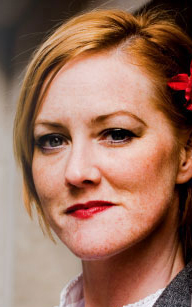UW journalism alumna exposed scandal in British Parliament

I rather think Britain’s Members of Parliament wish I’d chosen a different career. You see, it was my freedom of information requests that lifted the lid on the MPs’ expenses scandal. The revelations of duck houses and moat cleaning, mortgages that didn’t exist and the switching of second homes to avoid taxes have so far led to the resignation of six ministers and the first Speaker of the house since 1695. More than 100 MPs are rumoured to be standing down at the next general election.
I didn’t set out to cause this much trouble. I didn’t aim to bring the American Revolution home to the motherland. I was simply copying a story I’d done while working as a legislative reporter in 1992 for the Spokane Spokesman-Review newspaper as part of a UW journalism course.
When I began college in 1988, I was planning to study physics. But in the first quarter of my freshman year, I applied for a job as office manager of the student newspaper. I’d done a bit of reporting in high school and thought this would be a good way to carry on the hobby.
I was hired by a Che Guevara lookalike named Keven Ruf, ‘89. He was uber-political and uber-cool and I can remember my utter awe upon meeting him. For those first few weeks I sat quietly in the corner, listening to the wannabe Bob Woodwards who lounged on the decrepit Daily couch spouting political ideologies and raving about the latest Sub Pop release. I wondered: ‘How do I get to be as cool as that?’
Eventually I managed to get over my blushes and asked if I could write something. I was dispatched to review a new vegan bar opening on Capitol Hill. The bar was famous for its wheatgrass juice and in order to demonstrate my commitment to journalism, I tried the foul-smelling libation. The juice tasted as disgusting as it smelled but from then on I was hooked. I loved getting to experience strange things, talk to unusual people, write about it and then get paid for the pleasure.
The Daily was working its spell on me. Journalists are intensely curious and politically engaged and the newsroom acted as a magnet for this type of person. Suddenly I found people as opinionated and curious as myself. Within the year, I’d ditched my physics degree and switched to journalism and political science. Soon I wasn’t content to listen: I wanted to make my voice heard, too.
When the feminist columnist Gestin Suttle graduated, I asked if I could take over her slot. The ‘Intimate Rebellions’ column was born—my own brand of feminism and female sexuality. It was my first taste of notoriety.
I’d always been politically minded, though not interested in running for office. I liked studying power: who has it, how they got it and what they do with it. I became the ASUW reporter covering the student government and some Board of Regents meetings. In my senior year, I signed up for Newslab, a practical course overseen by Doug Underwood in which students were assigned to actual newspapers to cover the legislative session in Olympia. I’d hoped to get the plum Seattle Times job but instead I was assigned to the Spokesman-Review. My initial disappointment faded when I discovered I would be the paper’s only reporter covering the entire session as its full-time correspondent had left. Staffers filled in but it was my editor, Joe Fenton (now the metro editor at the Cincinnati Enquirer), who guided me. And it was he who first suggested I dig around in politicians’ receipts.
I expected to get resistance but instead I was politely shown into a room and given boxes of receipts to trawl through. I didn’t find a story among the receipts but I did write one about the frequent flier miles claimed by Spokane politicians on taxpayer-funded flights. I also gained valuable insight into political life and why transparency is vitally necessary if we want to ensure those in power work in our interests and not their own.
When I graduated I went to work at the Spokesman-Review as a general assignment reporter and then to a New York Times regional newspaper in South Carolina to work the crime beat. Soon the job I loved became a chore. I quit to do a master’s degree in Britain, stayed and several years later decided to write a book about Britain’s new freedom of information act. I began reporting again and made a few calls to the Houses of Parliament. When I met with resistance, I filed FOI requests. When these were blocked, I appealed all the way to the High Court. The rest, as they say, is history.
I never dreamed I’d get such a story. My highest ambition back then was simply to get a job, a more realistic goal was getting a quote on the Daily wall. If you look carefully you might be able to spot a few.